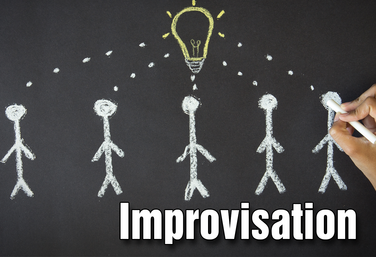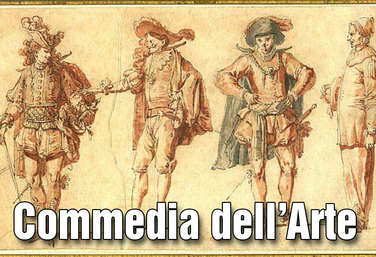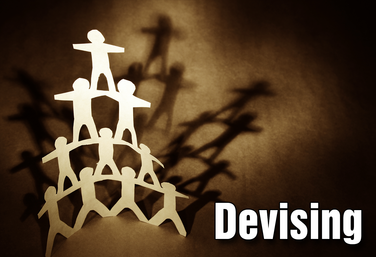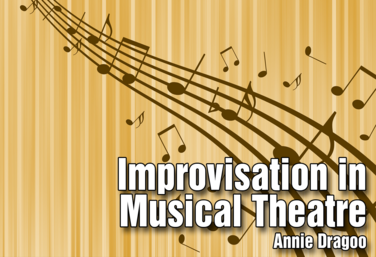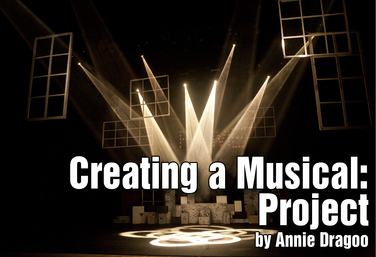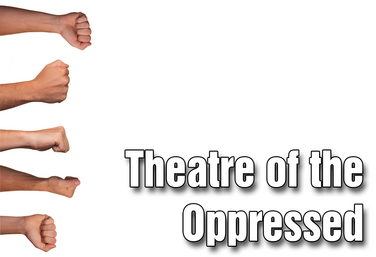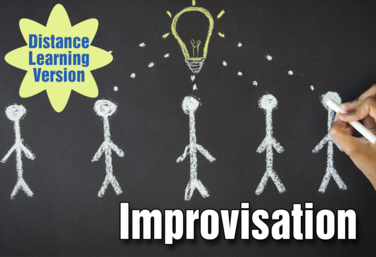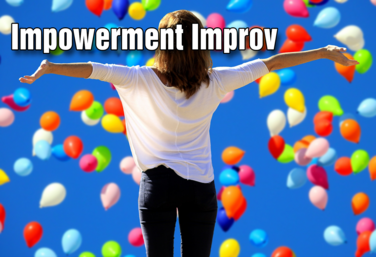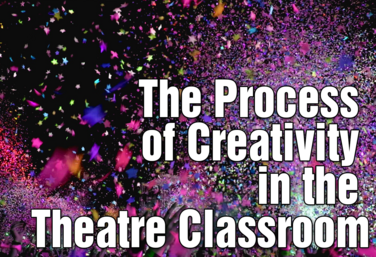Texas Essential Knowledge and Skills for Theatre Arts
HS 117.315 LI - Foundations: Inquiry and Understanding
View all Standards for Texas Essential Knowledge and Skills for Theatre Arts
C.1.J identify the principles of improvisation.
Part of the Drama One Curriculum
Improvisation
by Karen Loftus
Students sharpen their listening and reaction skills through improv games, exercises, and scenes. They will learn five specific guidelines to apply to their improvisation: accept the offer, bring information to the scene, make active choices, make your partner look good, and don’t force the humour.
There are so many different ways to approach a unit on improvisation. Keep in mind that you will have students who are really excited about this unit and some students who dread it. It’s best to start with low-risk games and exercises and then build up to higher-risk ones. Low-risk games in this situation mean partnered interactions that aren’t shared with the whole class.
Read More...
Read Less...
Part of the Drama One Curriculum
Commedia Dell'Arte
by Karen Loftus
Students will discover, analyze, and explore the history, characters, and style of commedia dell’arte.
Commedia dell’arte is a theatre history unit mixed with improvisation, physicalization, and exploring specific characters. In this unit, we’re going to focus on three main aspects:
1. Causes and Effects of Commedia (History)
2. Stock Characters
3. Commedia Performance Practices
Read More...
Read Less...
Part of the Drama Two Curriculum
Devising
by Corinna Rezzelle
While the Drama Two Curriculum has a focus on acting, it’s always important to include a unit on the technical theatre skills that are necessary to any production. Students will also be able to use what they’ve learned in this unit in their upcoming devising project.
Students will begin by exploring design for the stage by experimenting with line, shape, texture, size, and color. They will expand their understanding of stage properties and scenic flats. They will then apply their knowledge of these building blocks of design to create a high-concept design for a miniature “stage.”
Read More...
Read Less...
Improvisation in Musical Theatre
by Annie Dragoo
Understanding basic improvisation skills will help musical theatre performers understand that musical theatre is more than just singing and dancing. It’s about using all the tools (voice, body, and mind) an actor has at their disposal to create a character.
This unit focuses more on the improv aspect rather than the musical theatre aspects - in fact students need no prior musical theatre knowledge. Annie Dragoo, creator of the unit, uses this material as her first unit in her musical theatre class. It’s a great introduction and will get your students in the right frame of mind to approach musical theatre.
The lessons explore a variety of improv skills such as vocal responses, movement, character study, sensory awareness and culminate in an improv scene and unit essay.
Read More...
Read Less...
Creating a Musical: Project
by Annie Dragoo
Want a fun project that has your students collaborating and creating? In this unit by Annie Dragoo, students in groups will write and perform an original musical by adding modern songs to a traditional fairy tale story.
The six lessons take students from writing their script, to choreography and planned movement, to rehearsing, performing and evaluation.
The Rubric will focus on student performance. That means vocal delivery, emotional delivery, blocking/choreography, energy, focus, and characters.
Read More...
Read Less...
Part of the Middle School Curriculum
Unit Eight: Theatre of the Oppressed
by Lindsay Johnson
Students will have a chance to merge their understanding of scene elements with their improvisation skills in this final unit based on Augusto Boal’s Theatre of the Oppressed. Theatre of the Oppressed is a style of theatre specifically created to highlight the injustices of power and oppression in society and to problem-solve ways to bring about change.
Starting with image theatre techniques to identify issues of power and oppression, students will then use forum theatre to create scenarios of oppression taken from their own lives and improvise realistic solutions.
The unit culminates in a performance in which students participate as both actors in a scene they create themselves and spect-actors in scenes created by their peers.
Read More...
Read Less...
Part of the Distance Learning Curriculum
Improvisation
by Lindsay Price and Karen Loftus
Students sharpen their listening and reaction skills through improv games, exercises, and scenes. They will learn five specific guidelines to apply to their improvisation: accept the offer, bring information to the scene, make active choices, make your partner look good, and don’t force the humor.
Read More...
Read Less...
Impowerment Improv
by Jennine Profeta
Taking risks, learning to see failure as a gift, finding courage when we don't feel it, and having the awareness that what we say has an impact are social and emotional skills students will take beyond the classroom. These are skills that can be built through improv exercises.
The exercises in this unit are designed to create a safe environment in which students can go beyond their old patterns to take risks, embrace failure, and be more confident and aware of the effects of their word choices. Improv gives you the opportunity to draw attention to these important concepts and to talk about them.
Read More...
Read Less...
21st Century Skills Through Devising
by Allison Williams
Allison Williams leads the course: 21st Century Skills Through Devising. This course covers what devising is, why to do it, how to do it, and how your students can master the 21st Century Skills of collaborations and cooperation, critical thinking, creative thinking through devising.
High school is a great place to try devising with your students. But it’s not something you want to throw at your students without any preparation. Framework is important and this course takes you through a number of exercises you can take into the classroom tomorrow to help build a place of physical safety, a place where students work at making a lot of choices instead of waiting for the perfect choice, and a place where students feel comfortable making creative choices. The material also reviews the process of putting together a show from the idea/research stage to editing, to giving feedback.
Your students have what it takes to create their own material, collaborate with each other, and have a unique theatrical experience!
Read More...
Read Less...
The Process of Creativity in the Theatre Classroom
by Gai Jones
Gai Jones leads this course in establishing an environment of creative experimentation in the theatre classroom, in order to have a group of student actors who value the creative process.
Each lesson shares experiences to foster creativity without the stress of performance by student actors. For the creative process which honors out-of-the-box thinking, there is no assessment section included. There is no product or performance. The important thing is the student actor’s engagement. Their reflections and your observations are valued for positive learning.
This set of lessons includes Tips for the Theatre Educator, based on Gai's own Theatre practice. Scripts are also provided and contain text of what you can say to your students to facilitate their creative processes.
Read More...
Read Less...
View all Standards for Texas Essential Knowledge and Skills for Theatre Arts Standards Master List
© Copyright 2015-2025 Theatrefolk
